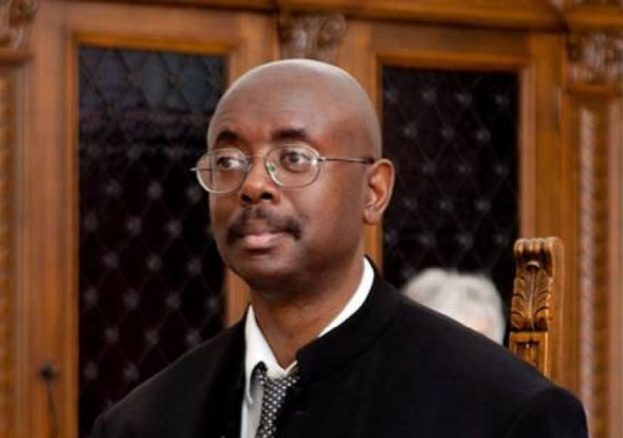
History in its broadest sense contains all knowledge not acquired in the present. Therefore, all the subjects studied at school have history as their base, be they in the social sciences, the natural sciences, or the arts. All of them (mathematics, chemistry, English literature, religious education, even physical education) contain accumulated knowledge collated over many years, i.e. not in the present. History is thus the foundation of all of them.
This raises the question: What is Black history?
Many scholars regard Africa and its heritage as the CENTREPIECE of Black history. Africa and its civilisations show what Black people were capable of building in all African settings. This raises another question: Who researched African history and heritage and what did they discover?
African American historians in the nineteenth century began mapping the history of Africa. Great strides were made in the 1920s with the work of Mrs Drusilla Houston. Her pioneering Wonderful Ethiopians of the Ancient Cushite Empire told the story of civilizations such as Ancient Kush and Egypt, but also of Negro civilizations that used to exist in Western and Southern Asia. Unfortunately, her work was too far ahead of its time to gain the mass acceptance that it deserved.
Professor DuBois penned the landmark The World and Africa. Published in 1946, he told the story of Negro civilisations in North, South and West Africa. Like Houston, before him, he also told of ancient Negro civilizations that used to exist in Asia.
Professor DeGraft-Johnson, a Ghanaian historian, wrote African Glory. Published in 1954, it advanced the state of knowledge by including a strong account of the civilisation of the Moors in Spain and the Kongo Kingdom in Central Africa. It also had a very detailed account of the vast West African desert super states of Ghana, Mali, and Songhai. Like DuBois before him, however, DeGraft-Johnson was weak on the civilisations of East Africa.
Englishman Basil Davidson plugged this gap with his classic Old Africa Rediscovered, issued in 1959. Davidson, and later English scholars, alerted historians to the growing wealth of archaeological material available on the African past.
Introduction to African Civilizations, the classic by Professor John Jackson, was a 1970 synthesis and update of DuBois, DeGraft-Johnson, and Davidson, together with research Jackson conducted with Willis Huggins, a colleague from the 1930s and 40s. In particular, Professor Jackson shows that humanity was of African origin. Moreover, the early civilisation of Sudan, Egypt, Sumer, Elam, and India were Negro. He further demonstrated that Africans voyaged to America well before the time of Christopher Columbus. This was the most complete synthesis before my When We Ruled appeared in 2006. It was also the biggest influence on my work.
The methodology of researching and writing about the African heritage was much advanced by the examples set by Cheikh Anta Diop and Yosef ben-Jochannan. With the publication of Precolonial Black Africa in 1960, Professor Diop, a Senegalese scholar, demonstrated the importance of reconstructing the social, political, economic, intellectual, technical, and aesthetic elements of the old African civilisations. This brings colour and vividness to those remote times totally lacking when history is presented as dry dates and dusty kings lists. His 1974 classic African Origin of Civilization: Myth or Reality? was concerned with a single question: Who were the Ancient Egyptians? In addressing this controversy, Diop presented an invaluable masterclass of how to interpret primary and secondary source material. Moreover, he demonstrated the key importance of confronting problem areas in Black history rather than retreating from them.
Professor ben-Jochannan, author of the 1971 tome Africa! Mother of Western Civilization, also teaches how to interpret source material. Moreover, Dr Ben introduces his readers to long forgotten works on African history written since the late eighteenth century. He empowers his readers to examine these works for themselves and to follow the leads that they give.
Professor Chancellor Williams’ The Destruction of Black Civilization also of 1971 is another classic. Influenced by DuBois but augmented using oral tradition and a team of researchers working with him, this remains one of the finest and most influential pieces of research out there.
Readers should also consider the following 10 books that filled in this or that piece of the African jigsaw:
Charles S. Finch, The Star of Deep Beginnings, US, Khenti, 1998
Runoko Rashidied, African Presence in Early Asia, US, Transaction Publishers, 1995
- A. Rogers, World’s Great Men of Color, Volume I, US, Macmillan, 1972
- T. Stride & Caroline Ifeka, Peoples and Empires of West Africa, UK, Thomas Nelson and Sons, 1971
John E. G. Sutton, A Thousand Years of East Africa, Kenya, British Institute of Eastern Africa, 1990
Ivan Van Sertima ed, Black Women in Antiquity, US, Transaction Publishers, 1988
Ivan Van Sertima, Early America Revisited, US, Transaction Publishers, 1998
Ivan Van Sertima ed, Egypt Revisited, US, Transaction Publishers, 1989
Ivan Van Sertima ed, Golden Age of the Moor, US, Transaction Publishers, 1992
Jan Vansina, Kingdoms of the Savanna, US, University of Wisconsin Press, 1966
Robin Walker ‘The Black History Man’ attended the London School of Economics where he read Economics. In 1991 and 1992, he studied African World Studies with Dr Femi Biko and later with Mr Kenny Bakie. Between 1993 and 1994, he trained as a secondary school teacher at Edge Hill College (linked to the University of Lancaster). In 2006, he wrote the seminal When We Ruled. It is the most advanced synthesis on Ancient and Mediaeval African history ever written by a single author. Since then he wrote When We Ruled Study Guide, Blacks and Science Volumes I, II and III, Blacks and Religion Volumes I and II, The Rise and Fall of Black Wall Street, The Black Musical Tradition and 19 Lessons in Black History. He also wrote three books in collaboration with others: Everyday Life in an Early West African Empire, African Mathematics, and Black British History.
